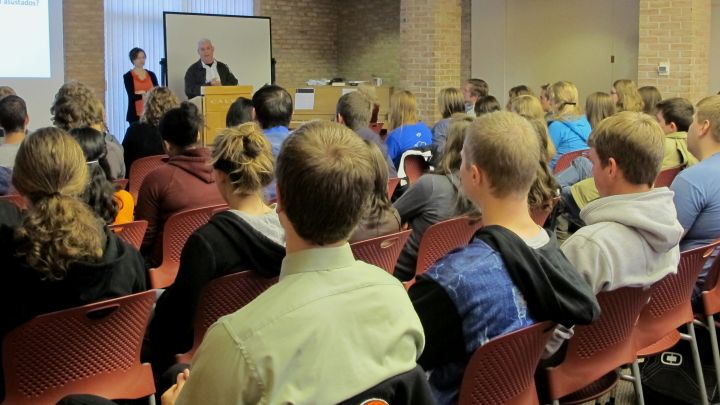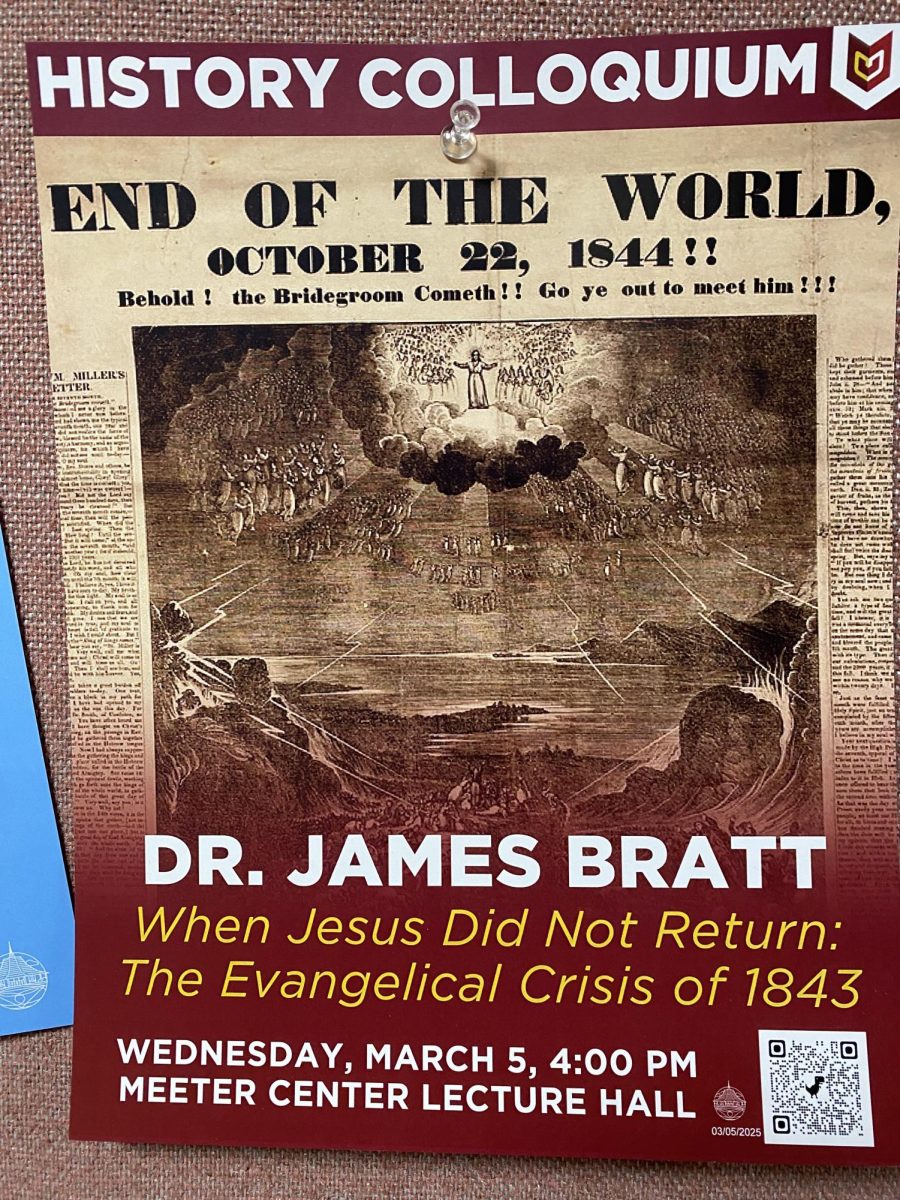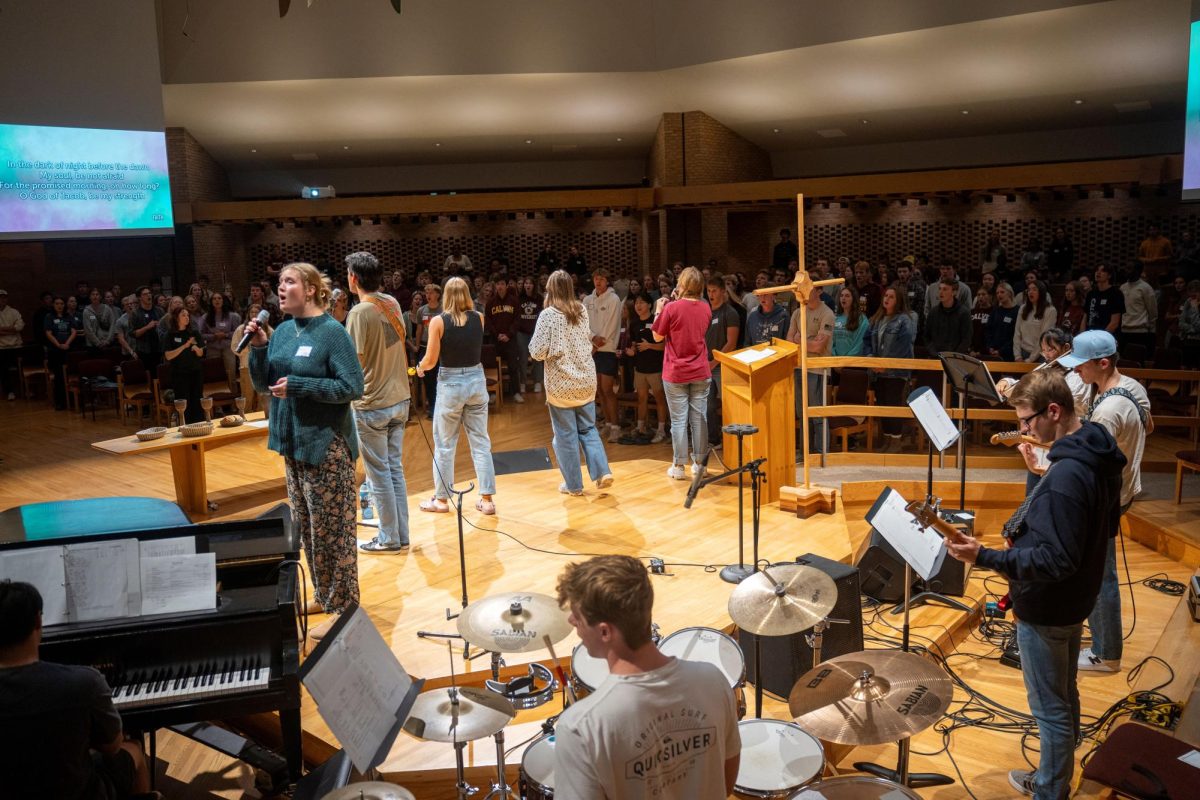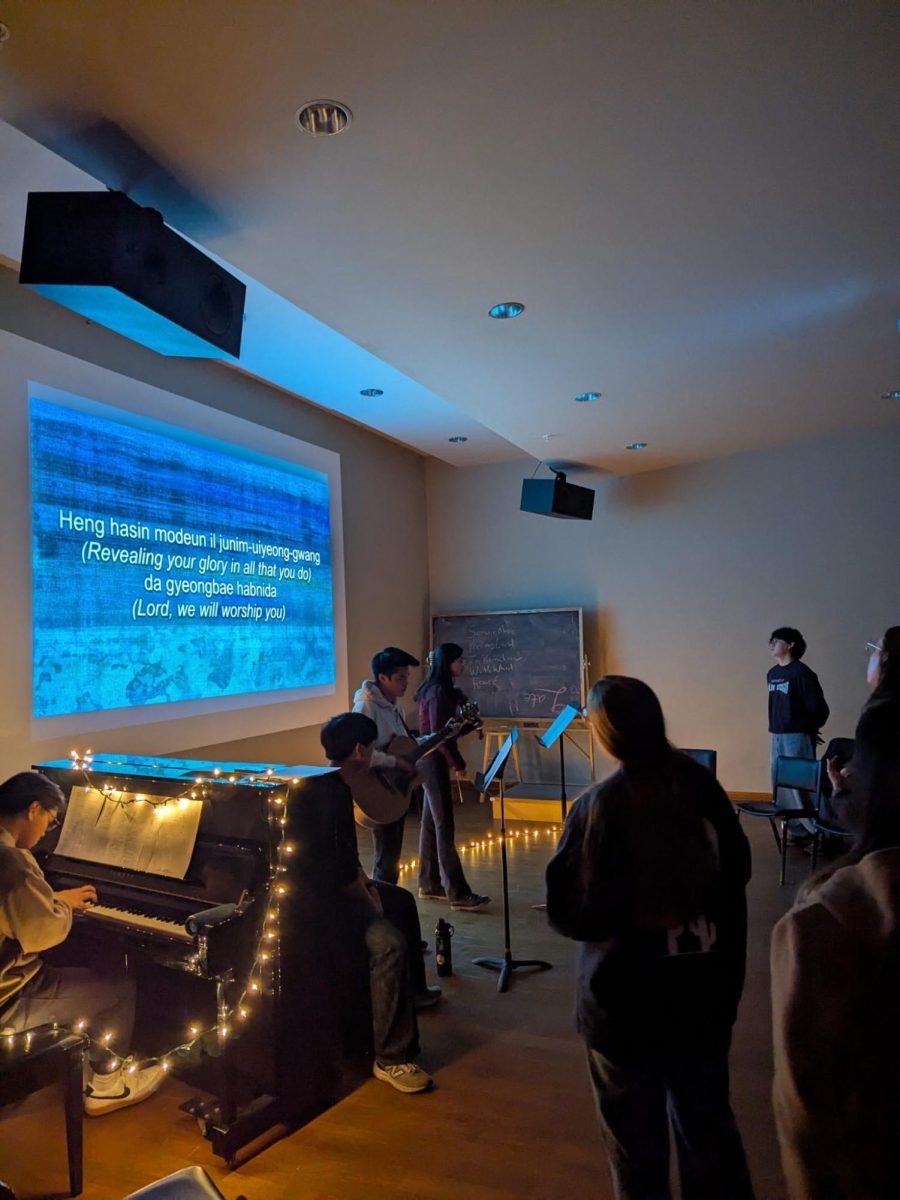One of the pillars at Calvin College is the act of engaging God’s world. Though this can be seen in myriad ways, language — and specifically world language chapels — are a compelling example.
Stemming from the Spanish, German, French and Dutch departments, these chapels grant students the experience of worshiping outside their culture and comfort zone.
Structured so students can participate on several levels, the chapels are designed to offer a well-rounded ethnic experience.
German department chair Corey Roberts describes it this way:
“Throughout the year, we tend to do a pretty large variety of worship styles, and students attend quite regularly so they get good exposure to an array of German traditions of worship,” he said:
“That includes things from the historical creeds, [the Heidelberg] catechism, the Lord’s Prayer and classic German hymns and worship music to more recent trends in worship like short dramatic sketches, responsive readings, Taize worship and praise songs — everything in German, of course.”
As for the intensity, Roberts says, “We try to give language helps or explanation so German speakers and learners of any level can know what’s going on.”
By attending a world language chapel, students have the opportunity to grow both in faith and fluency. One of the organizers of the Spanish chapels, professor Marilyn Bierling, says of faith and language:
“For one thing, it’s beautiful to praise the Lord together in another language and to realize that, no matter what language we speak and whatever our national origin, we are sisters and brothers in Christ, and we are heard and loved by God.”
Roberts adds that “experiencing another culture’s worship traditions also provides some perspective on the ways that we worship in our own home culture, and it can give insight into interesting and valuable differences.”
For some, world language chapels represent not only faith and language, but cultural heritage as well. Looking specifically at the Dutch chapel shows both the community of Calvin College and Grand Rapids getting back to their roots.
Roberts shares how “Dutch chapels are perhaps unique among the foreign language chapels as they have, in addition to students, a good representation of faculty, staff and people from the community who are motivated to gather to worship in Dutch,” he said.
“In this way, Dutch chapel is also a good reminder of the cultural heritage of the college and its Dutch Reformed roots.”
Creating an atmosphere rich in diversity, language chapels help to better one’s understanding of the world and its traditions.
From the students who attend to earn Spanish culture points to those leading worship solely in Dutch, valuable insight can be gained; all it takes is an open heart and mind.
World language chapels invite students to step out of their carefully constructed idea of worship and into a different, but nevertheless beautiful experience.







